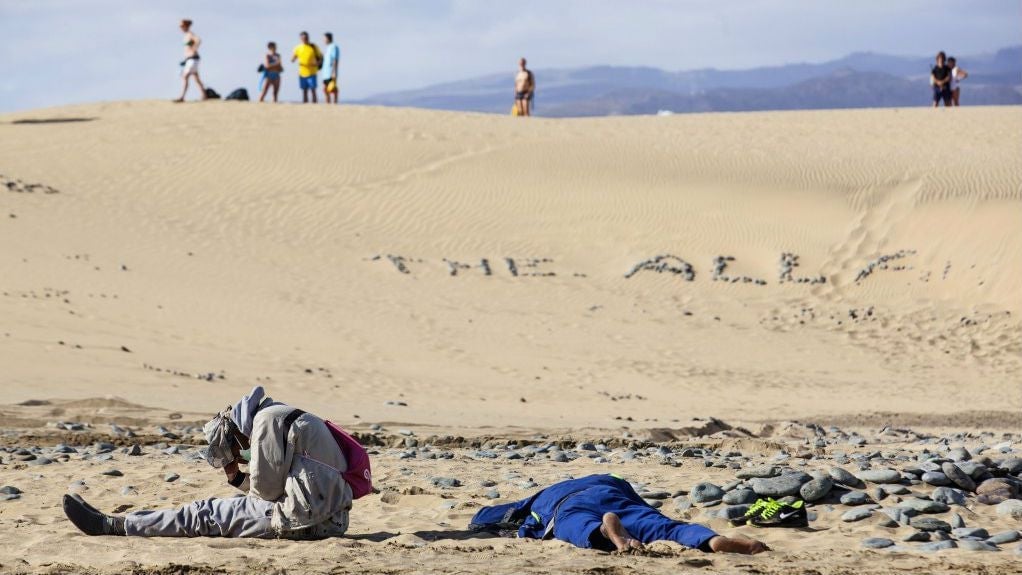Good samaritans and government efforts have helped stem the death toll for migrants on the Mediterranean
The human tragedy unfolding in the Mediterranean has done so at a slower pace since April, when hundreds of migrants seeking refuge in Europe were killed after their boat capsized. That single disaster elicited broad acknowledgment that the resources provided under the European border protection operations known as Triton and Poseidon, which replaced the much larger Italian search and rescue program Mare Nostrum, were insufficient.


The human tragedy unfolding in the Mediterranean has done so at a slower pace since April, when hundreds of migrants seeking refuge in Europe were killed after their boat capsized. That single disaster elicited broad acknowledgment that the resources provided under the European border protection operations known as Triton and Poseidon, which replaced the much larger Italian search and rescue program Mare Nostrum, were insufficient.
While debating a longer term solution, with disagreements as to whether every country should be assigned a quota of refugees (and whether the nature of the naval operations should be limited to search and rescue missions or serve as a genuine border patrol), the European Council has stepped up the presence at sea, tripling the financial resources devoted to the issue in 2015 and 2016. Together with independent efforts by governments including that of Italy, Ireland, and Germany, the additional efforts resulted in a dramatic drop of the deaths in the Mediterran (pdf).
Official operations aren’t the sole reason. Individuals are helping, too, proportionately to their means. One story of generosity that’s become rather popular is that of Italian-American businessman Christopher Catrambone and his Italian wife, Regina, who, according to NPR, have have invested $8 million to buy a boat, hire a crew, and conduct rescue operations in the Mediterranean. Catrambone told the Guardian that he decided to start his rescue operations when confronted with the evidence of a shipwreck while on a cruise in Greece:
If you are against saving lives at sea then you are a bigot and you don’t even belong in our community. If you allow your neighbor to die in your backyard, then you are responsible for that death.
Another pair of samaritans, German businessmen Harald Höppner and Matthias Kuhnt, invested a reported $162,000 in a ship they planned to use in self-funded rescue operations based off the coast of Malta. The men told the Washington Post that hundreds of people offered to help them, and that they hoped their initiative would inspire other yacht owners to follow their example.
It’s not just the wealthy getting involved. Stories like the one of Antonis Deligiorgis, a Greek army sergeant who singlehandedly rescued 20 of 93 drowning migrants after a boat crashed into rocks near the shore. Together with “some guys from the coastguard around me who had jumped in with all their clothes on,” the rescuers pulled the refugees ashore because, as Babis Manias, a fisherman who joined the efforts, told the Guardian, “They are souls, like us.”
Individual efforts to save migrants’ lives at sea started several years ago. In 2009, Tunisian fishermen saved 44 victims of a shipwreck (link in Italian); another 80 people were similarly rescued (link in Italian) in 2015. Episodes of rescues by Sicilians and citizens of Lampedusa, Italy’s southernmost island, are rather frequent (link in Italian).
These stories provide a heartwarming counterpoint to the cold bureaucracy of the authorities, which is perhaps best symbolized by the fact that in some cases, these rescuers incur legal trouble for following the “law of the sea” (a code of honor which demands the rescue of victims) rather than that of national or international waters (link in Italian).